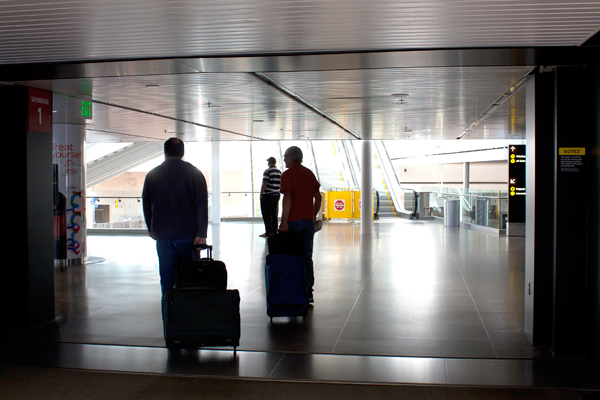 In a world brimming with wanderlust, where the call of distant horizons echoes through the souls of many, there exists a unique breed of individuals—those addicted to travel. Their passports are stamped with memories, and their hearts beat to the rhythm of adventure. Yet, behind the allure of exploration lies a profound journey of temptation and triumph.
In a world brimming with wanderlust, where the call of distant horizons echoes through the souls of many, there exists a unique breed of individuals—those addicted to travel. Their passports are stamped with memories, and their hearts beat to the rhythm of adventure. Yet, behind the allure of exploration lies a profound journey of temptation and triumph.
For the travel addict, the temptation is ever-present, woven into the fabric of their being. It manifests in the allure of unexplored destinations, the promise of cultural immersion, and the thrill of stepping into the unknown. The mere thought of embarking on a new journey can send their spirits soaring, igniting a restless fire within that can only be quenched by the next adventure.
But with temptation comes challenges, and the travel addict must navigate a myriad of obstacles on their quest for fulfillment. They grapple with the uncertainties of solo expeditions, the complexities of cultural adaptation, and the sacrifices required to sustain their nomadic lifestyle. Yet, in the face of adversity, they find strength—the triumph of the human spirit over adversity.
One of the most profound triumphs of the travel addict lies in the richness of experience they accumulate along their journey. Each encounter becomes a story, each destination a chapter in the book of their lives. They embrace the unfamiliar with open arms, immersing themselves in diverse cultures, forging connections with strangers, and expanding their horizons with every step taken.
Moreover, the travel addict discovers a profound sense of freedom—a liberation from the constraints of routine and the monotony of everyday life. They find solace in the open road, comfort in the unfamiliar, and joy in the pursuit of discovery. With each adventure, they reaffirm their commitment to living life to the fullest, savoring every moment and seizing every opportunity that comes their way.
But perhaps the greatest triumph of the travel addict lies in the transformation they undergo along their journey. As they traverse the globe, they are shaped by their experiences, enriched by the diversity of the world, and enlightened by the wisdom of cultures both ancient and modern. They emerge not only as seasoned travelers but as ambassadors of understanding, compassion, and unity in a world desperately in need of connection.
In conclusion, the temptation and triumphs of those addicted to travel are woven into the very fabric of their existence. They navigate a world of uncertainty with courage and resilience, finding solace in the freedom of the open road and fulfillment in the pursuit of discovery. Their journey is not without its challenges, but it is through overcoming these obstacles that they find true liberation and transformation.

 Traveling is not merely about crossing destinations off a bucket list or snapping photos at picturesque landmarks. For some, it’s a way of life—a passion that transcends mere leisure. Being addicted to travel isn’t just about visiting new places; it’s about embracing a lifestyle characterized by exploration, discovery, and a constant craving for the next adventure. Let’s delve into the exhilarating world of travel addiction and explore why some individuals find themselves irresistibly drawn to the thrill of exploration.
Traveling is not merely about crossing destinations off a bucket list or snapping photos at picturesque landmarks. For some, it’s a way of life—a passion that transcends mere leisure. Being addicted to travel isn’t just about visiting new places; it’s about embracing a lifestyle characterized by exploration, discovery, and a constant craving for the next adventure. Let’s delve into the exhilarating world of travel addiction and explore why some individuals find themselves irresistibly drawn to the thrill of exploration. Embarking on the journey of addiction recovery is a profound and transformative experience. For some, this path intertwines with another powerful passion – travel. In this article, we explore how travel becomes the ultimate companion for those navigating the complexities of addiction recovery, offering a unique avenue for self-discovery, growth, and healing.
Embarking on the journey of addiction recovery is a profound and transformative experience. For some, this path intertwines with another powerful passion – travel. In this article, we explore how travel becomes the ultimate companion for those navigating the complexities of addiction recovery, offering a unique avenue for self-discovery, growth, and healing. The thrill of discovering new places and faces is one of the main attractions that can fuel the travel addiction. Such individuals often find themselves satisfying the urge to explore new countries and cultures, more than actually enjoying the journey. For some, the addiction is more of a personal challenge, as they feel the need to unlock every country – or even continents – leading to perpetual wanderlust. As much of a blessing this habit may be, it can also become an expensive habit as more often than not, it requires regular travel and new destinations.
The thrill of discovering new places and faces is one of the main attractions that can fuel the travel addiction. Such individuals often find themselves satisfying the urge to explore new countries and cultures, more than actually enjoying the journey. For some, the addiction is more of a personal challenge, as they feel the need to unlock every country – or even continents – leading to perpetual wanderlust. As much of a blessing this habit may be, it can also become an expensive habit as more often than not, it requires regular travel and new destinations.




